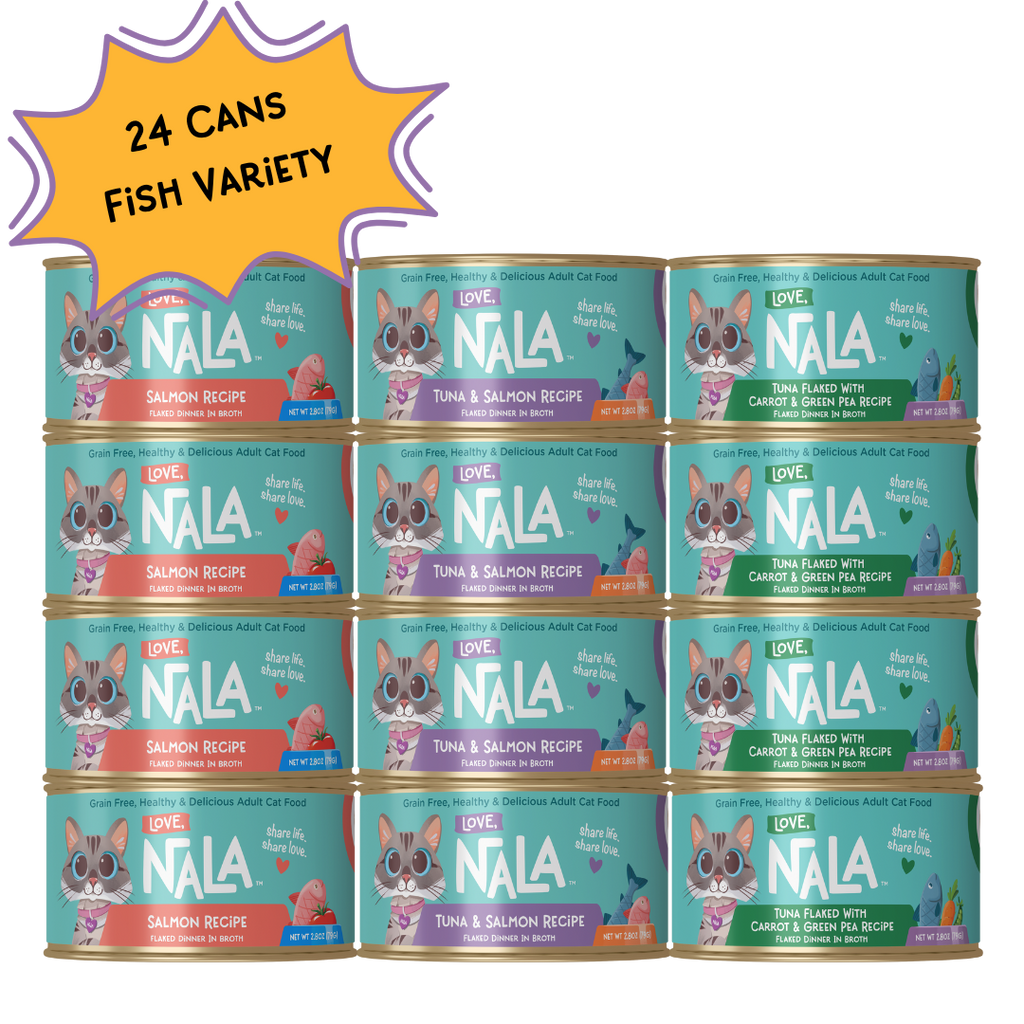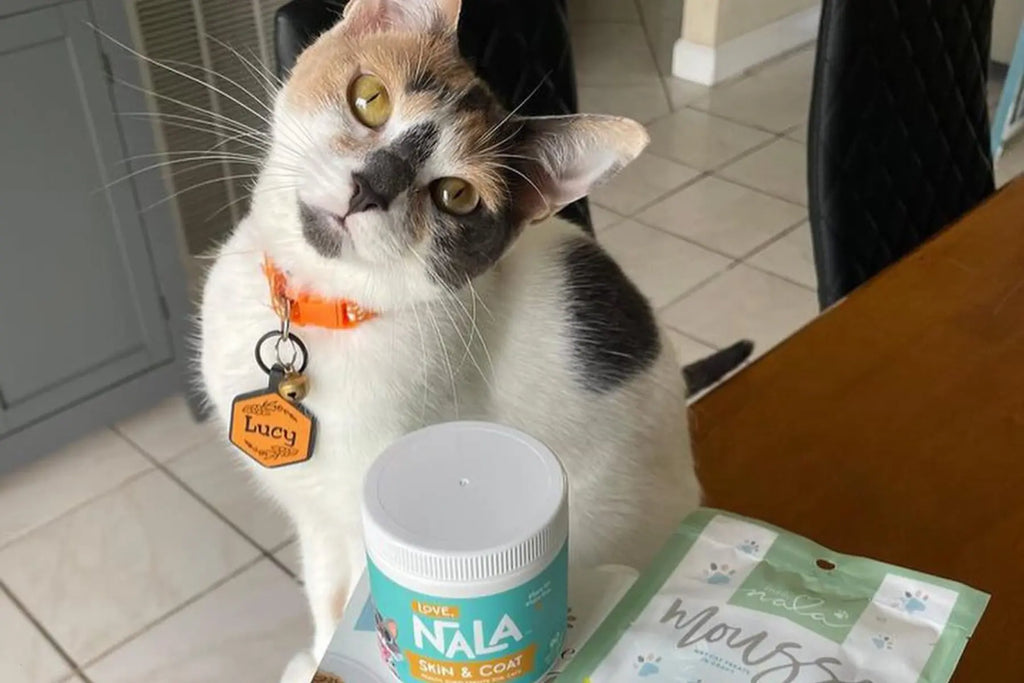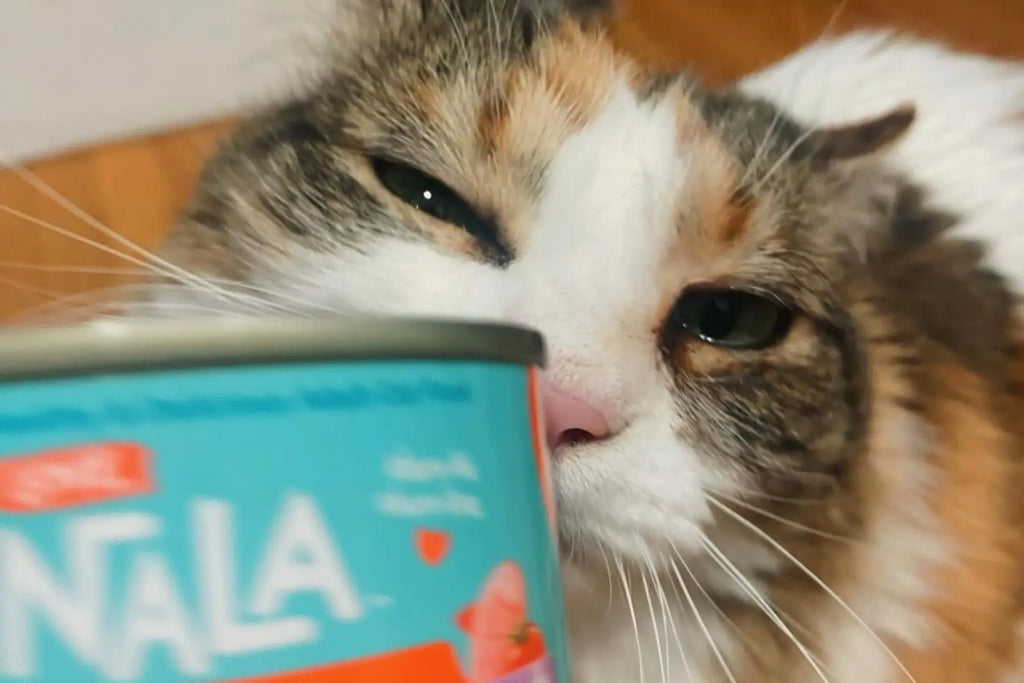Cats, much like humans, can experience allergies, which often manifest through their diet. A novel and effective approach to managing these allergies is the use of hydrolyzed protein cat food. This type of food has been gaining attention for its unique way of addressing dietary sensitivities and allergies in cats. In this blog post, we'll explore the concept of hydrolyzed protein in cat food, delve into the science behind it, and examine its benefits for cats suffering from allergies. By understanding what hydrolyzed protein is and how it works, cat owners can make more informed choices about their feline friends' diets, ensuring their pets lead happier, healthier lives.
The Science of Hydrolyzed Protein for Allergic Cats
The process of hydrolyzation in cat food involves breaking down protein molecules into smaller, more digestible fragments. This is achieved through a reaction where water molecules break the peptide bonds in proteins. The resulting smaller peptides are less likely to trigger the immune response that leads to allergic reactions in cats. This scientific advancement in pet food manufacturing makes hydrolyzed protein cat food a revolutionary option for cats with food sensitivities.
In cats with food allergies, the immune system mistakenly identifies certain proteins as harmful, triggering an allergic reaction. The smaller protein fragments in hydrolyzed wet cat food and dry varieties are less likely to be recognized by the cat's immune system. This significantly reduces the chances of an allergic reaction. The hydrolyzation process, by creating these smaller components, provides a safe protein source for allergic cats, allowing them to enjoy their meals without the risk of allergic reactions.
When compared to traditional cat food proteins, hydrolyzed proteins offer a distinct advantage for allergic cats. Regular cat foods often contain whole protein sources, like chicken or beef, which are common allergens for cats. These proteins, in their whole form, are more likely to elicit an allergic response. In contrast, hydrolyzed dry cat food or wet food breaks these proteins down, thereby drastically reducing the risk of triggering allergies.
Managing allergies in cats often involves a careful selection of diet, and hydrolyzed protein plays a crucial role in this. This can lead to a significant improvement in the quality of life for cats with allergies, reducing symptoms like skin irritation and chronic discomfort. For many cats, a switch to a hydrolyzed protein diet can be a turning point towards a healthier, happier life free from allergic reactions.
Evaluating Hydrolyzed Wet Cat Food for Allergic Cats
Moisture plays a pivotal role in the diet of allergic cats, and hydrolyzed wet cat food offers an ideal solution. Cats naturally have a low thirst drive and may not drink enough water, potentially leading to dehydration. This can be particularly problematic for allergic cats, as adequate hydration is crucial for flushing allergens and toxins from the body. Wet hydrolyzed food, with its high moisture content, ensures that cats get the necessary hydration along with their meals. Choosing the right wet hydrolyzed protein cat food for your allergic cat involves several important considerations:
- Ingredient Quality: Select foods with high-quality, limited ingredients to reduce the risk of introducing new allergens.
- Nutritional Balance: Ensure the food meets all of your cat’s dietary requirements, including vitamins and minerals.
- Palatability: Consider your cat’s taste preferences to ensure they will readily eat the food.
- Veterinarian Recommendation: Seek advice from a veterinarian, especially if your cat has specific health concerns.
Selecting the right hydrolyzed wet food involves understanding your cat's individual health needs and preferences. Each cat is unique, and what works for one may not necessarily be suitable for another. It's important to observe how your cat responds to a portion of new food in terms of both their allergic symptoms and their overall health and enjoyment of the food.
When looking for the best hydrolyzed wet cat food, comparing different brands and formulas is a wise strategy. This involves looking at the composition of each product, understanding the source and type of hydrolyzed protein used, and considering the overall nutritional profile. It's also helpful to read reviews and experiences from other cat owners, especially those with cats that have similar allergy profiles.
Choosing Hydrolyzed Dry Cat Food for Convenience
Hydrolyzed dry cat food offers several benefits, particularly for pet owners looking for a convenient and effective solution for their allergic cats. The advantages of choosing this type of food include:
- Ease of Storage and Handling: Dry food is less messy and easier to store compared to wet food. It doesn't require refrigeration, making it a convenient option for many cat owners.
- Long Shelf Life: Dry cat food typically has a longer shelf life, reducing the frequency of purchasing and the worry about food going bad.
- Portion Control and Free-Feeding: It allows for easier portion control and can be left out for free-feeding without the risk of spoiling, especially beneficial for cats who prefer to graze throughout the day.
- Dental Health Benefits: The texture of dry kibble can help maintain dental health by reducing tartar buildup.
Despite these benefits, it's important to remember that hydration remains crucial, so providing ample fresh water is essential when feeding dry food, especially for cats prone to allergies.
When selecting hydrolyzed dry cat food, the quality of ingredients is a key factor to consider. Look for products that list a hydrolyzed protein source as the first ingredient, ensuring that the food is high in the necessary proteins for your cat. Additionally, a good dry food formula should contain essential vitamins, minerals, and fatty acids to support overall health. Avoid products with excessive fillers, artificial preservatives, or colors, as these can be detrimental to a cat's health, especially for those with allergies.
Integrating dry food into a cat's diet, particularly for those with allergies, should be done with care. Start by mixing a small amount of the hydrolyzed dry food with their current food, gradually increasing the proportion over a week or more. This gradual integration helps the cat's digestive system adjust to the new food and minimizes the risk of gastrointestinal upset.
Dietary Considerations for Cats with Allergies
Managing allergies in cats begins with identifying and eliminating common allergens from their diet. As mentioned previously, the most frequent allergens in cat food include certain proteins like beef, dairy, and fish. To determine which specific ingredients are causing issues, a process of elimination or an elimination diet, often recommended by veterinarians, can be effective. This involves feeding your cat a diet with limited and novel ingredients, including hydrolyzed protein cat food, and then gradually reintroducing other foods. Once identified, these allergens should be consistently avoided to manage the allergic reactions effectively.
Hypoallergenic diets play a crucial role in managing allergies in cats. These diets typically include hydrolyzed protein for cats. These diets can significantly reduce the symptoms associated with food allergies. It’s important to select a diet specifically formulated to be hypoallergenic and to follow a veterinarian’s guidance when transitioning to these types of foods.
Understanding food labels is essential when choosing food for cats with allergies. Labels provide vital information about the ingredients and nutritional content of the food. Look for foods that list hydrolyzed proteins as a primary ingredient and avoid those with common allergens or unnecessary additives. Being knowledgeable about the ingredients and their potential effects on allergies can help you make more informed choices about your cat's diet. Remember, the goal is to find a diet that not only manages allergies but also supports the overall health and happiness of your feline friend.
Consulting with Veterinarians on Allergy-Friendly Diets
Veterinarians can conduct or recommend specific tests to accurately diagnose food allergies. They can also provide expert advice on choosing the right type of hydrolyzed protein diet and other dietary adjustments necessary for managing allergies. This professional input is invaluable in ensuring that dietary changes contribute positively to your cat's health and do not inadvertently cause other health issues.
Each cat is unique, and what works for one may not work for another, especially when it comes to allergies. A veterinarian can help tailor a diet to meet the specific needs of your cat, considering factors like age, breed, weight, and the severity of allergic symptoms. This might involve a specific type of hydrolyzed protein cat food, balancing it with other nutritional components, or adjusting meal sizes and frequency. Personalizing your cat's diet in this way ensures that they receive the right nutrients in the right amounts while keeping allergic reactions at bay.
After transitioning to a hypoallergenic or hydrolyzed protein diet, continuous monitoring of your cat’s health is crucial. Regular veterinary check-ups can help track the effectiveness of the diet in managing allergy symptoms and ensure overall health is maintained. The vet can also make further dietary adjustments if needed and check for any other health issues that might arise. Keeping a close eye on your cat’s condition, behavior, and comfort level after the diet change helps in the early detection and management of any potential issues.
To conclude, hydrolyzed protein cat food has emerged as a pivotal solution for cats suffering from food allergies. The hydrolyzation process, which breaks down proteins into smaller, less allergenic fragments, offers a safer dietary option for these sensitive felines. This type of food not only helps in reducing allergic reactions but also ensures that the cats still receive the essential nutrients they need for overall health. Whether in the form of wet or dry food, hydrolyzed protein can significantly improve the quality of life for cats with allergies, reducing common symptoms like skin irritation, gastrointestinal upset, and chronic itching. By following these, cat owners can ensure their beloved feline friends lead a happy, healthy, and comfortable life, free from the distress of allergic reactions.




















